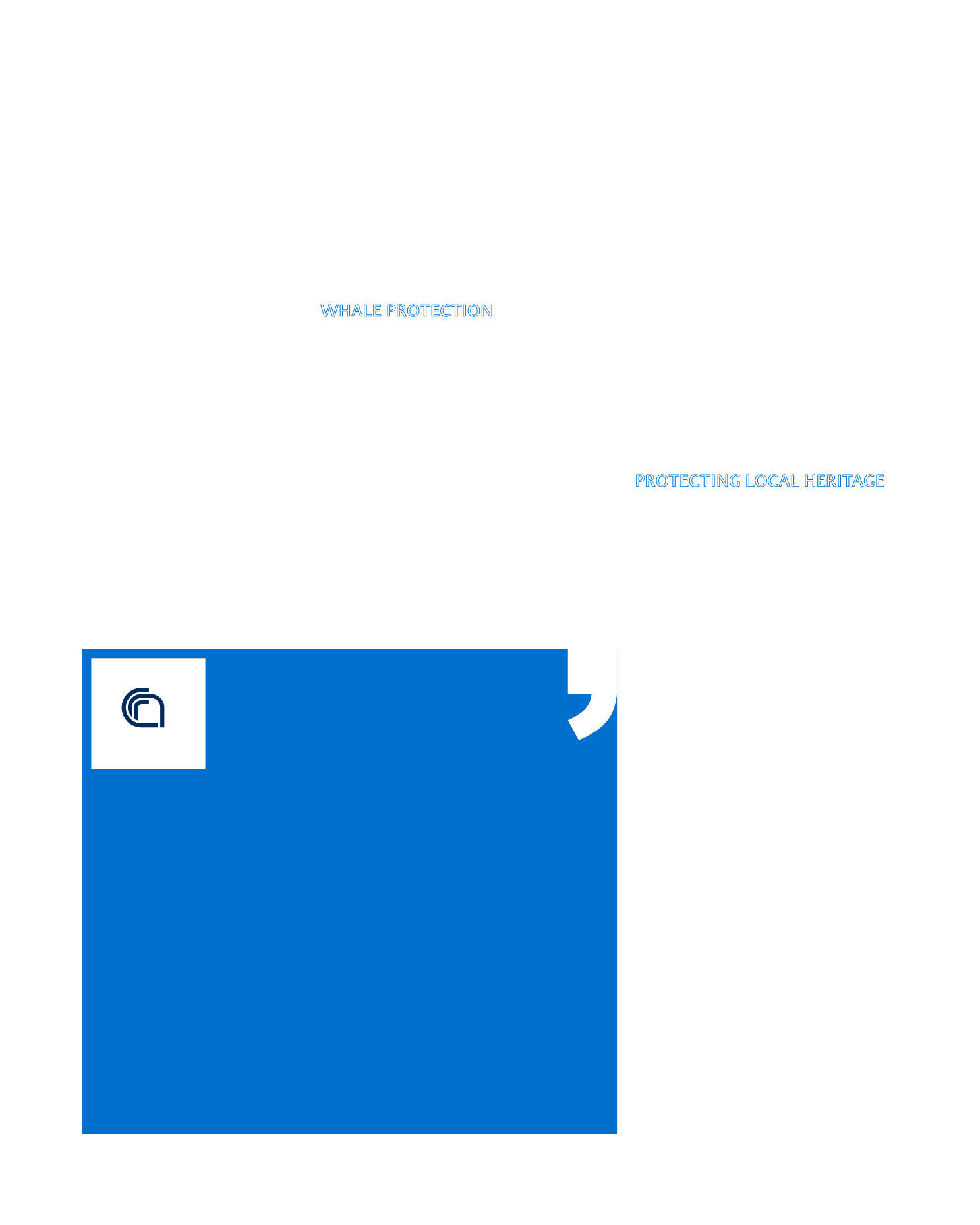

clear and established requirements and
comply with procedures for reporting
of sightings. In such cases the ship’s
Officers will make any necessary course
and speed adjustments, utilize additional
bridge lookouts and notify appropriate
shoreside authorities.
PROTECTING LOCAL HERITAGE
The selection of cruise destinations and
the associated shore tours – there are
more than 2,000 listed in Costa Cruises’
brochure – to the most significant
artistic and cultural attractions as well
as places with natural scenery result
in the forging of strong links between
the Company and the different local
communities, with the former always
doing its utmost to protect, respect and
enhance the latter.
On the strength of this important
relational capital, we go further in the
pursuit of our philosophy of responsible
tourism by offering a specific program
of
eco-tours
to unspoiled areas (parks,
oases and nature reserves) that are
generally off the beaten track.
These low environmental impact eco-
tours (there are currently more than
340) are designed based on specific
feasibility studies carriedout to examine
possible itineraries and transport
options for guests. In keeping with
Costa’s idea of ecologically sustainable
nature-based tourism and to underline
the idea of “discovery”, these excursions
feature zero-impact means of transport
such as bicycles, mountain bikes,
electric tricycles, canoes and kayaks.
WHALE PROTECTION
Whale conservation and welfare is
part and parcel of Costa Cruises’
environmental responsibility.
The Company complies with voluntary
seasonal shipping lane changes and
speed restrictions to avoid whale strikes,
especially prior to entering marine-
protected areas and marine sanctuaries;
to this end we also monitor feeding and
migrationpatternsofwhales known tobe
found in areas where our ships operate.
Officers take part in a
Whale Protection
Training Program
so that, should it be
necessary, they will be able to follow the
The large number of vessels plying the Mediterranean every day
endanger dolphins and threaten their survival. Awareness of this
risk prompted Costa Cruises to support a Mediterranean dolphin
protection project in partnership with
CNR - Ismar
(Italian National
Research Council - Institute of Marine Sciences). The aim of this
initiative is to reduce the risk of dolphins and porpoises being
accidentally trapped in fishing gear by warning them off with
acoustic deterrent devices, known as “pingers”. These dissuasive
devices are attached to fishing nets and emit a safe, ultrasonic sound
that keeps cetaceans away so as to reduce the risk of accidental
netting. Costa donated pingers to 22 Italian fishing trawlers
belonging to the
Fishing Cooperative at the Port of Ancona
.
Further to this project, the CNR is continuing to conduct research
and monitoring with the objective of developing and refining
techniques for the protection of marine life.
Together with CNR
for dolphins
in the Mediterranean
gotype
Utilizzo su base quadrata
rche
LOGORESTYLING:SILVESTROCALIGIURI -CNR
Possibilità di utilizzo
Consiglio Nazionale
delle Ricerche
ngolare orizzontala con il logotipo e la dicitura Consiglio Nazionale
zioni potrebbe rendersi necessario il suo utilizzo su base quadrata.
















